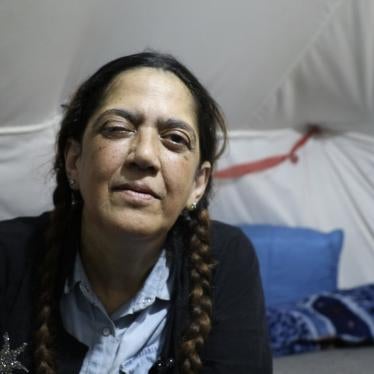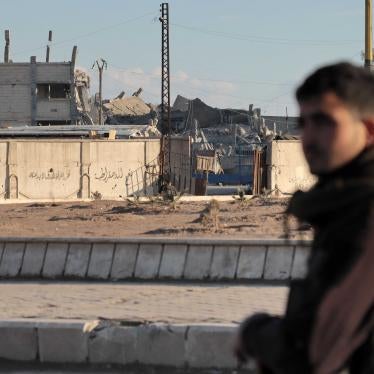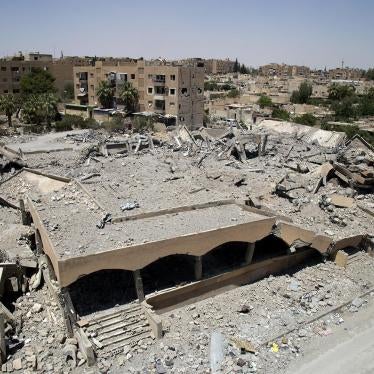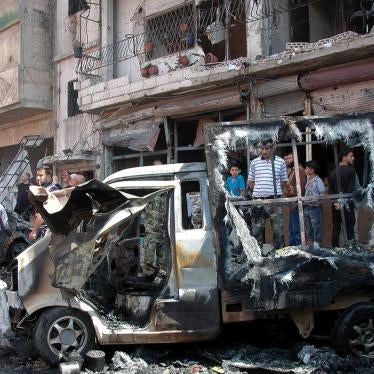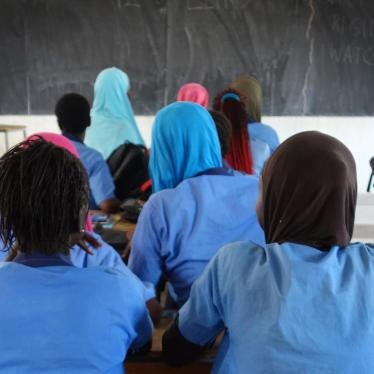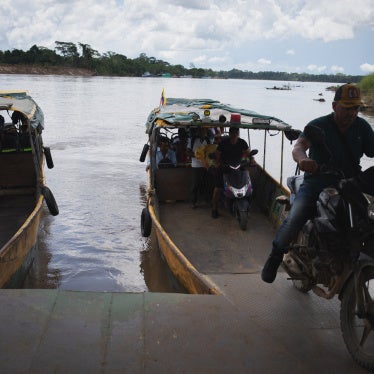22nd Special Session of the UN Human Rights Council on the human rights situation in Iraq
Human Rights Watch welcomes the HRC's attention to the crisis in Iraq and to that end supports a resolution calling on all parties to cease fighting and for an independent investigation into abuses committed by all sides to the conflict.
As human rights activists, we deplore the extraordinary savagery of ISIS -- against hundreds of thousands of Shia, ethnic and religious minorities, and other Iraqi and Syrian civilians, as well as the executed journalist James Foley. We are humbled by the challenge of restoring humanity to the conflicts that roil much of the Mideast. In recent months, we have documented many of the latest atrocities that ISIS has carried out in Iraq, for example highlighting its massacres of members of the Yezidi minority, and investigating and conducting advocacy on ISIS’s nearly three-month-long seige of Amerli in its attempt to eradicate the thousands of Shia Turkmen living in that town. Our in-depth research, including photo analysis and satellite imagery, into the summary executions of as many as 1,000 captives near Tikrit was a solid evidence that the massacre ISIS boasted of had taken place, and we are releasing new information on this brutal war crime in the coming week. We are also investigating ISIS attacks against the Shabak minority.
However, Human Rights Watch also deplores the savagery of government forces and government-backed militias. We are concerned that the current draft resolution fails to take into account the numerous abuses that Human Rights Watch and other entities, including the United Nations Assistance Mission for Iraq (UNAMI), have documented by these forces. Despite their breadth and brutality, these abuses go largely unreported in international media.
Since the onset of the conflict in Anbar province in early 2014, Human Rights Watch has documented Iraqi government forces dropping barrel bombs in Anbar and Nineveh provinces, targeting Fallujah General Hospital in Anbar, and using indiscriminate fire in civilian areas. These attacks have killed hundreds, if not thousands, of civilians.
Human rights Watch has also documented the extrajudicial killings of hundreds of prisoners in June and July of this year by Iraqi army, police and special forces in what appear to have been at least six successive acts of retributive violence. Similarly, in July and August Human Rights Watch documented a pattern of government-backed Shia militias kidnapping and killing Sunni men in Baghdad, Diyala and Babel provinces. There has been no public acknowledgment of and no investigation into these crimes. On the contrary, the government has significantly increased its use of militias and sectarian volunteers in its fight against ISIS. Militia members and volunteers freely acknowledge that they consider all Sunnis—including civilians—to be terrorists and, therefore, targets for kidnapping and death.
We are currently investigating allegations of ongoing abuses by these groups, including the possible killing of dozens of civilians in Iraqi air strikes on Hawija in August; three instances of suspected Asai’b Ahl al-Haqq members summarily executing groups of Sunni men during the same month in Kirkuk (one incident just days ago); a shooting inside a Sunni mosque in Diyala that killed as many as 80 people and that Asa’ib is alleged to have committed, and the beheading of an 18-year-old man last week, purportedly by Shia militiamen. These allegations are a stark reminder that while it appears politicians are making progress in Baghdad, there is no indication that they are mandating that security forces or affiliated militias change their unlawful tactics.
Human Rights Watch urges the Human Rights Council to dispatch an investigation into serious violations committed by all sides, and to identify those responsible for serious violations with a view to ensuring that they are held accountable. We recognize that our work in laying the groundwork for future accountability will be limited, in the short term. But given the extreme brutality and the deep political, cultural, and sectarian polarization in Iraq at this time, the universal values of human rights have never been so important. And even when the perpetrators are beyond shaming, the moral imperatives to name names and to ensure accountability have never been greater.

